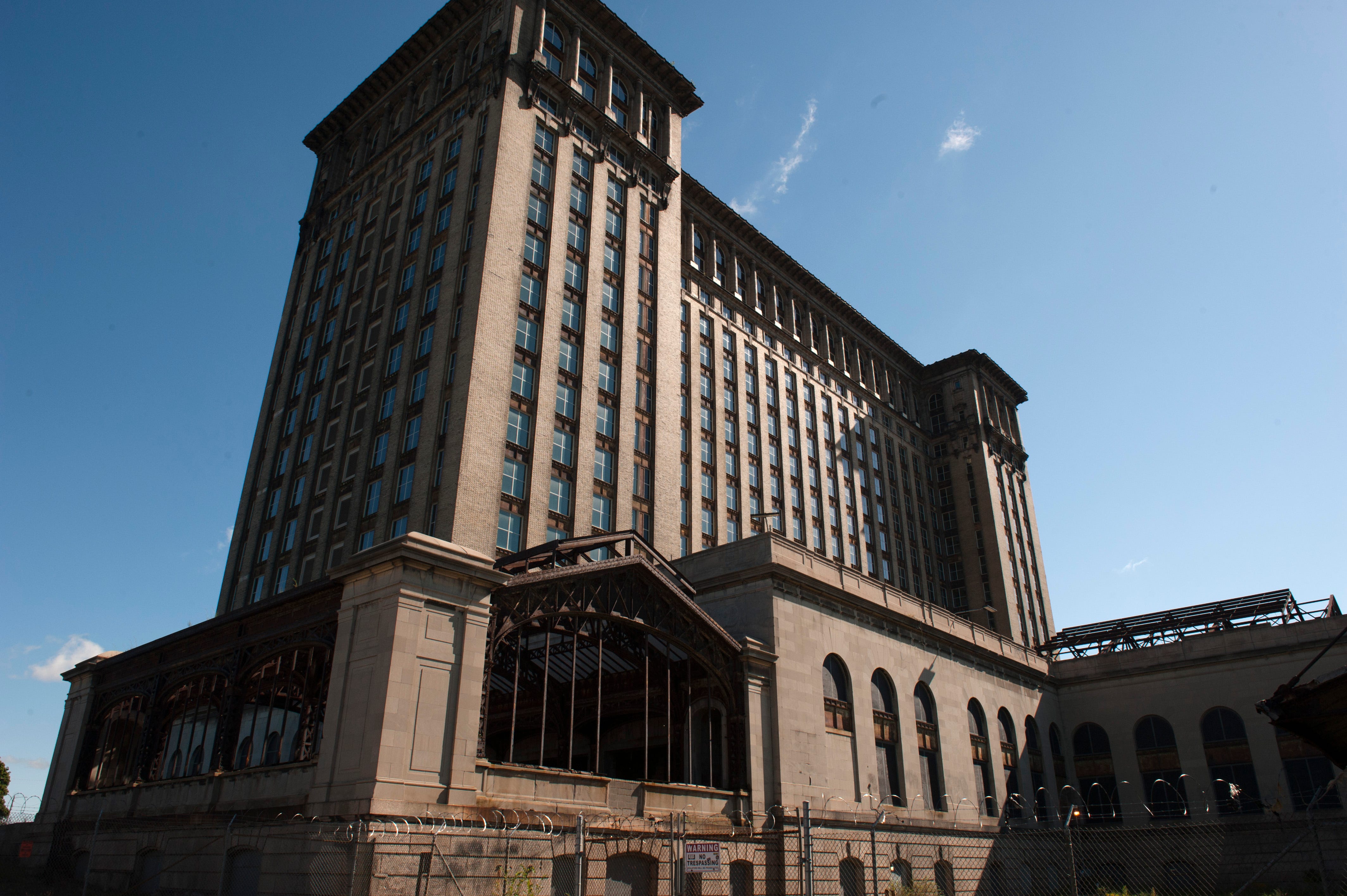Ford Corktown site gets $207M state tax break
 Breana Noble
Breana Noble
The state of Michigan is giving up to $207 million in tax breaks over 30 years for Ford Motor Co. to restore Michigan Central Station.
The Michigan Strategic Fund board approved on Tuesday a renaissance zone for the Dearborn automaker's $740 million, 1.2 million-square-foot campus in Corktown expected to hold 5,000 workers. The designation is part of Ford's $238 million request for tax breaks and would virtually eliminate property taxes for the autonomous and electric vehicle development site.
"As the automotive and tech industry intersect," Jeff Mason, CEO of the Michigan Economic Development Corp., said on a call with media ahead of the strategic fund board's meeting, "investments like this are critical to maintaining our leadership in the industry."
The zone would exempt real and personal property taxes except for debt mills, city corporate income tax and utility users tax. Personal city income tax revenue would be generated and collected from the project. The designation would save Ford an estimated $6.9 million per year.
The renaissance zone will become effective within five years. It includes the train station and its parking deck that Ford plans to build, the Detroit Public Schools book depository, the Factory building, the Brass Factory and the North Michigan Avenue Parking Deck that Ford also will construct.
Ford plans to move 2,500 of its employees into the Corktown campus. Stacy Bowerman, Michigan Economic Development Corp. senior project manager, said the company has until the end of 2028 to move the other 2,500 workers from Ford partners and suppliers to the campus.
The renaissance zone could include additional property to help attract future investments to support the revitalization of Corktown. Those projects must receive approval from the city and Michigan Strategic Fund manager within the next five years.
The city of Detroit already has approved Commercial Rehabilitation Act and Obsolete Property Rehabilitation Act tax abatements estimated at $27 million over 12 years. Ford is requesting $104 million in city tax breaks over 35 years.
Right now the station earns the city about $200,000 per year in taxes. Mayor Mike Duggan's office estimates the site would provide $10 million primarily in tax revenue from income taxes after the campus opens in late 2022.
In total, the Michigan Strategic Fund approved incentives to projects representing $1 billion in capital investment. Several in Southeast Michigan represent more than $187 million in investment. The board approved more than $13 million in grants and more than $52 million in tax breaks.
San Jose, California-based Samsung SDI America Inc. is receiving a $10 million grant to create its first U.S. high-volume automotive battery park manufacturing facility in Auburn Hills.
The $62.8 million investment would be home to its battery operations headquarters, research and development technical center and battery pack manufacturing operation. It would create 461 jobs by the end of 2024 that include production line operators, factory managers and engineers. Samsung now employs 130 workers in Michigan.
Samsung is the third company to receive a Good Jobs for Michigan incentive following KLA-Tencor Corp., another Silicon Valley company, receiving a $16.2 million, eight-year tax break last month and Pfizer Inc. receiving a $10.5 million, 10-year withholding tax capture this summer.
"We’re continuing to see increased interest in Michigan from Silicon Valley companies looking to expand," Mason said. "It will further expand Michigan’s high-tech, research-and-development footprint and show Michigan is the place where high-tech demands can be met."
The city of Auburn Hills anticipates the approval of a real property tax abatement. Michigan beat out a competing site in Oregon, Ohio.
The company formerly known as Delphi Automotive plans to invest up to $30 million into renovating part of its Troy campus in a move that would create 500 new engineering, support staff and electronics labs jobs over 10 years.
The Michigan Strategic Fund board approved a 10-year, 100 percent withholding tax capture valued at $30.7 million for Delaware-based Aptiv U.S. Services General Partnership. The company is renovating 186,000 square feet of its 473,426-square-feet campus to expand its advanced engineering, advanced safety and user experience offerings that have seen significant growth in recent years.
The labs will consist of engineering benches, failure analysis, engineering prototyping and validation. The site also will contain areas for vehicle storage, associated docks, a cafeteria and a vehicle demonstration area.
The Michigan Economic Development Corp. also is granting $3.2 million to Gallagher-Kaiser Corp., a Troy-based automotive paint finishing supplier, to expand its operations in Detroit.
The $9.3 million investment would involve purchasing two additional parcels and a vacant building adjacent to its site at 13710 Mt. Elliott St., allowing it to better meet customer demand that has required it to outsource to out-of-state manufacturers. The project would create 300 new jobs in Detroit and Troy.
The city of Detroit anticipates approval of real property tax breaks for the project. Michigan beat Indiana and Texas for the investment.
And the former Hazel Park Raceway will continue its transformation into the Tri-County Commerce Center. The strategic fund board approved a brownfield tax break including local and school tax captures of more than $21.4 million for the construction of two commercial buildings.
Ashley Capital, a New York real estate investment company, owns the former race track being redeveloped at the Tri-County Commerce Center. It plans to build two 650,000-square-foot and 840,000-square-foot multi-tenant facilities for manufacturing, warehouse and distribution uses. The project would cost $85 million.
In 2017, Ashley completed construction of a 575,000-square-foot building on the site. It now has multiple tenants. That project received $5.8 million in tax incentives from the MEDC in 2016.
Prior to becoming a raceway, a portion of the site served as a landfill. As a result, the project also is requesting more than $12.7 million in brownfield tax increment financing from the Michigan Department of Environmental Quality
bnoble@detroitnews.com